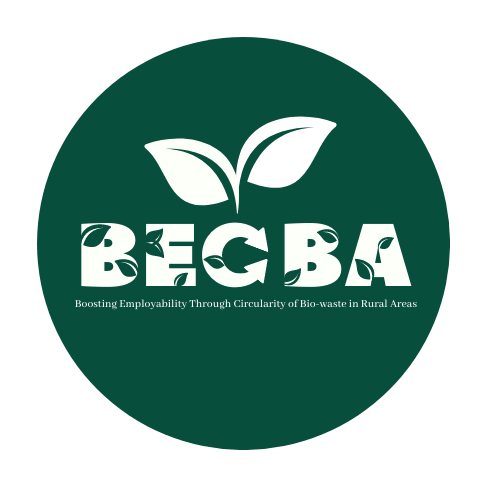BECBA – The Comparative Assessment of rural and circular practices in Albania, Austria, Greece and Kosovo is now available!

Waste mismanagement is a significant issue hindering the adoption of a circular economy model in the Western Balkan countries. The agriculture sector represents a large proportion of the bio-waste stream in the rural communities, facing a growing challenge related to insufficient and inadequate infrastructure. Landfilling remains the most applied method of waste disposal, although according to the waste management hierarchy this represents the least desired option. When bio-waste is dumped in landfills, it undergoes anaerobic decomposition (due to the lack of oxygen) and produces methane. Despite efforts to get rid of illegal dumpsites, they continue to thrive and represent a serious public health risk, particularly due to hazardous waste and groundwater contamination.
In this context, BECBA (Boosting Employability through Circularity of Bio-waste in Rural areas) seeks to engage and empower young people in agro-entrepreneurship actions turning bio-waste into valuable bio-products through innovative circular business models for job creation and environmental protection of rural areas.
As the first step, the consortium conducted research, at a national level, on the state-of-the-art in agricultural waste management systems and circular practices in rural areas. The research was comprised of two parts: desk research and primary research (surveys and interviews).
Following the national reports, a comparative report was developed to provide an in-depth analysis of bio-waste management practices, laws, regulations, and institutional frameworks in Albania, Austria, Greece, and Kosovo. Moreover, it examines the various types of agricultural production in these countries and their impact on bio-waste management, circular bio-waste management (best practices and entrepreneurial activity), and it analyses support mechanisms for entrepreneurs (funding, training, and other resources). Finally, it identifies ongoing or recent projects that BECBA can synergise with and it presents the results of the primary research.
You can find the comparative analysis here!
Next step: Agro-Circularity Pioneers Program – International Training Course in Vienna!
Stay tuned for more news on the project and its activities!


